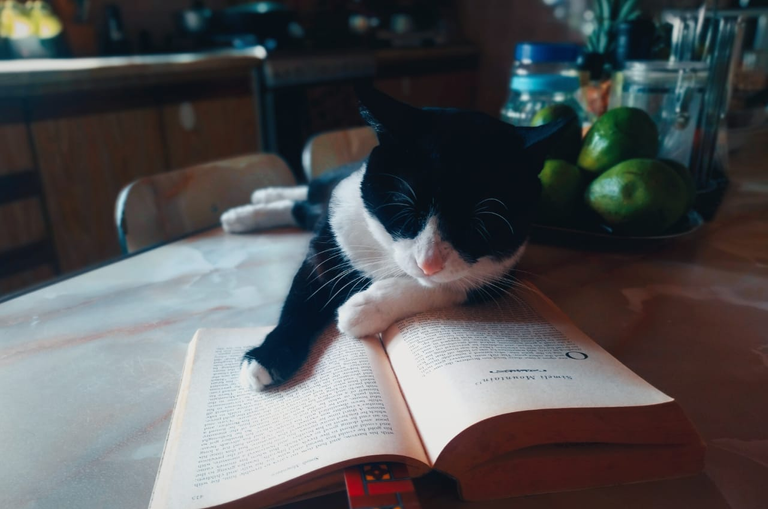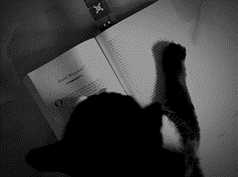"Mount Semsi, Mount Semsi, Open Up!"
Hi, Weekenders!
It's a pleasure for me to have an entry to share once again. There’s still time to participate; if you’re in the mood, click here to check out the Weekend-Engagement writing topics: WEEK 162.


"Mount Semsi, Mount Semsi, Open Up!
Such as are your habitual thoughts,
such also will be the character of your mind;
for the soul is dyed by the thoughts.
--Marcus Aurelius (161–180, AD)
On My Habitual Thoughts & the Character of My Mind
We're born naked and poor, for nothing that we can be given at birth we have yet earned. Our parents may have worked hard to provide for us and make us feel that we have a piece of this world, but this is only to their own credit. No one owns anything in this world but the opportunity to make something good out of that opportunity, for which we need to be brave and temperate. This thought found me at a tender age when I was too young to understand it thoroughly and has guided me throughout my life.
It's not that I suffer from ODD; I just don't care about your position in life, within the company, in the Church; I don't care about your badges. I may play along because such is the game, but I don't buy it. You must have been born rich and good for nothing; you must have been my boss, but what am I to make of that when you show poor judgment; you must be the Pope, but what do you want me to think of your soft hand against depravity; Should I respect you because you're the law? How when you yourself break it. All of this is pretty stoic, don't you think? Marcus Aurelius would agree, I'm sure.
I could choose so many examples to explain why my mind is shaped the way it is; for now, I'll tell you about "Simeli Mountain," which I'm sure Marcus Aurelius would've loved if he had lived to see the nineteenth century.
An Early Read
I was an early reader, but even though I was a little girl who unfailingly dreamed of distant, impossible kingdoms and a faceless idea of a prince charming, I knew something was wrong with the story of good poverty and bad wealth when I found "Simeli Mountain" in my book of fairy tales. Excuse me, why wasn't Prince Charming poor? (for example) What was it that these stories were not telling me?
“Simeli Mountain”--ATU type 676 (Open Sesame)--is one of the fairy tales collected and edited by the Brothers Grimm (1812). The title points to the denouement of the tale, when the rich brother ends up dead as he can't remember the real name of the magic mountain, which he needs to get out: “Mount Semsi.”

In this tale, there are no beautiful and helpless princesses ("Briar Rose," "Snow White and the Sven Dwarfs," "Rapunzel," etc.) or disobedient children eaten by wolves ("Little Red Riding Hood," or "Peter and the Wolf," among others). A six-year-old might find this story a bit grim and anticlimactic, as I did when I first read it, but it sticks anyway.
When we are inept at managing our resources, either because we fail to have enough to live with dignity or because we want more than we can handle, to the point of compromising our ethics, we're lost. Our habitual thoughts will be concerned only with this one thing (e.g. money) and will make us alienated.
The Tale
The story begins by letting us know there are two brothers; one is rich and the other is poor. Although we can’t tell the rich brother has anything to do with his brother's poverty--and incompetence--to provide for his family, the former is portrayed as selfish and evil, while the latter is apparently just a harmless and hardworking man.
As happened to Ali Baba (from the Arabian Nights), Poor Brother's lack of ambition is rewarded in the end; Allah seems to be good to him, while punishing his brother (Rich Brother) for his greed.
The Poor Brother discovers this magical mountain and the tresures inside it. He learns the magical words to open it up from some thieves in the forest: "Mount Semsi, Mount Semsi, open up!" Twice he goes into the mountain and takes "only what he needs," which he shares with his family and the poor people in his village. Soon his brother finds out and his greed and envy take over. He threatens him with telling the police unless he tells him where he's getting so much treasure. The poor brother confesses everything. Then the Rich Brother goes to the magic mountain and takes much more than he needs; by the time he wants to come out of the mountain, he has forgotten the magic words so he's trapped inside the mountain. He shouts, "Simeli Mountain, open up!" But nothing happens. He shouts this once and over again. The robbers return and discover him there; believing that he's the one who had robbed them twice already, they cut off his head. Of course, the Rich Brother tries to save himself by accusing his Poor Brother, but even though he was telling the truth, it did him no good.
Back to Marcus Aurelius
The stoicism exhibited by Marcus Aurelius in his statement reminds us that we must cultivate morality; in this sense, we must rid ourselves of envy and resentment, as well as jealousy. The Poor Brother in the tale doesn't blame his Rich Brother; and no matter how badly he needs it, he doesn't take much of the silver and gold, and he never touches the precious stones and pearls. He takes only "what he needs"; he shows temperance, one of the four cardinal virtues. Then, the two times he's inside Semsi, the magic mountain, he's able to rememeber the magic words and get out; this is, he remains sober (pure, righteous), while his Rich Brother was drunk with ambition.
Many things were not clear to me after reading this tale: Isn't stealing from a thief still stealing? Even if one only "takes what one needs." Who hoarded wealth in such a way that only thieves could access it, while the poor had to be content with being poor? Let mankind agree, is it or is it not good to be ambitious? And if greed is a sin, why does God himself put the crown on the heads of kings, icons of the purest ambition? All these things I wondered, but I couldn't articulate them in language until I was older.

I read a lot and rarely did I question the veracity and logic of the events in the fiction, since that was the point, wasn't it? Believe. To divert ourselves with these "imaginations." To get out of reality and get lost in the pages. But, honestly.

So that's it, my dear friends. I still read fairy tales now and then and continue to tinge my soul with these subversive thoughts. Many Mount Semsis yet to explore and see what riches are inside which can make a man turn so forgetful.

Thank you so much for your visit :)
All text and images are my own. I have taken the pictures with my Redmi 9T cell phone. And if any GIFs here, I've used GIPHY for all them.
